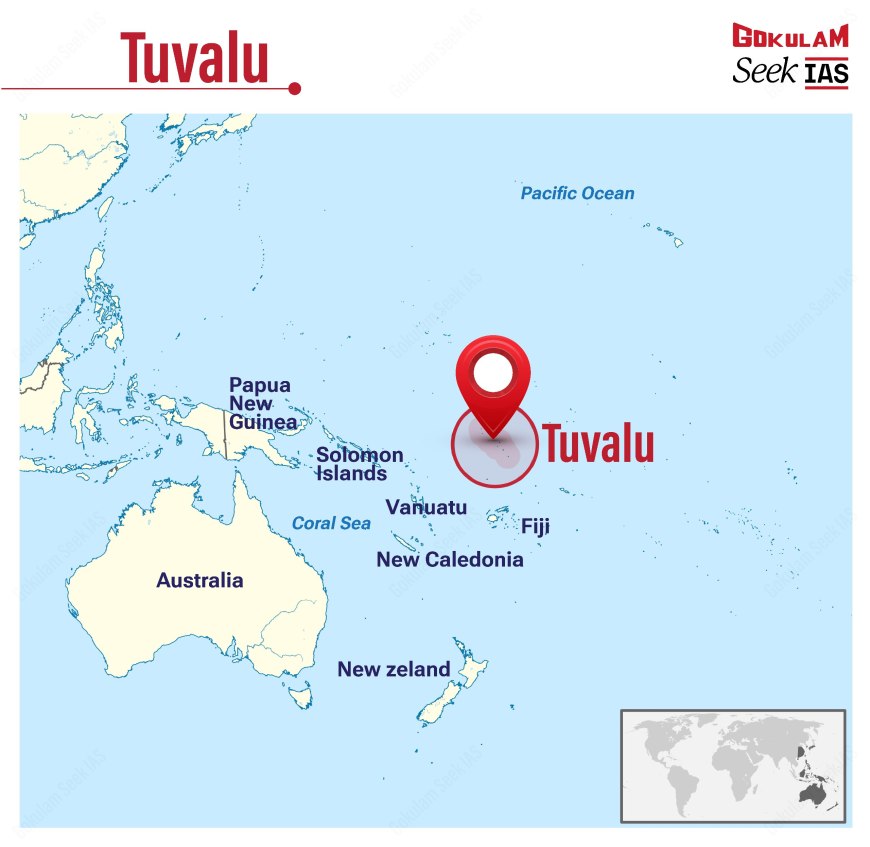
Tuvalu’s main trading countries
Tuvalu, a small Pacific Island nation, engages in limited trade due to its geographic isolation and small economy. The country primarily relies on imports to meet its domestic needs and exports a modest range of products. Here are Tuvalu’s main trading countries:
Main Import Partners
Tuvalu’s imports primarily consist of food, fuel, machinery, construction materials, and manufactured goods. The following countries play a significant role as import partners:
1. Australia:
Australia is a major source of imported goods for Tuvalu, particularly foodstuffs, construction materials, and fuel. The close geographical proximity facilitates this trade relationship. Australia also provides development aid that supports Tuvalu’s infrastructure and economy.
2. New Zealand:
New Zealand supplies agricultural products, dairy, and other essential goods to Tuvalu. The strong historical and cultural ties between the two nations further strengthen their trade relationship.
3. Fiji:
Fiji serves as a regional hub for trade in the Pacific. Tuvalu imports a significant portion of its goods, such as processed foods, beverages, and consumer goods, from Fiji. The connectivity between the two nations is vital for the supply of daily essentials.
4. Singapore:
Tuvalu relies on Singapore for its fuel imports, as Singapore is a major global hub for petroleum and refined oil products. This trade is essential to support Tuvalu’s energy needs.
5. Japan:
Japan exports machinery, vehicles, and other manufactured goods to Tuvalu. The technological and industrial advancements of Japan make it a valuable trading partner for the island nation.
Main Export Partners
Tuvalu’s exports are minimal due to its limited production capabilities. Its main exports include fish, copra (dried coconut kernels), and stamps. The primary export partners include:
1. Thailand:
Thailand is one of Tuvalu’s significant markets for fish exports. Tuna, in particular, is highly sought after, and the fishing industry plays a vital role in Tuvalu’s economy.
2. Japan:
Japan also imports fish from Tuvalu, especially tuna, as part of its demand for seafood. The partnership is mutually beneficial, given Tuvalu’s reliance on marine resources.
3. South Korea:
South Korea is another key destination for Tuvalu’s fish exports. The growing demand for sustainable and high-quality seafood has strengthened this trade relationship.
4. United States:
The U.S. imports Tuvalu’s philatelic items, including commemorative stamps, which are popular among collectors. This unique export contributes to Tuvalu’s niche revenue streams.
5. Fiji:
Tuvalu occasionally exports agricultural products, such as copra, to Fiji. This trade reflects regional cooperation and shared economic interests.
Challenges and Opportunities
Tuvalu’s trade relationships are constrained by its remote location, small population, and limited resources. High transportation costs and a narrow production base make it challenging to expand trade. However, the country is exploring ways to boost revenue through fisheries licensing, regional partnerships, and international aid programs.
In conclusion, Tuvalu’s main trading countries include Australia, New Zealand, Fiji, Singapore, Japan, Thailand, South Korea, and the United States. These nations provide essential imports and serve as key markets for Tuvalu’s limited exports. Strengthening these relationships and diversifying trade opportunities remain critical for Tuvalu’s economic sustainability.






Leave a Reply